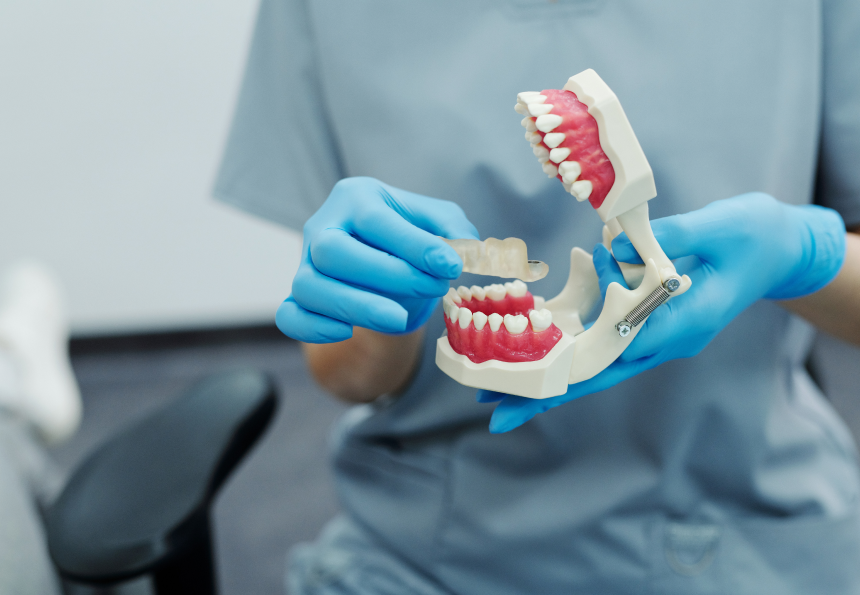Common Questions Concerning Dental Veneers Addressed
Oral veneers have ended up being an increasingly popular option for those wanting to boost their smiles, yet many individuals stay unclear about different aspects of their usage. Key concerns often arise concerning the application procedure, long life, and potential threats related to these cosmetic improvements. The difference between porcelain and composite veneers can dramatically influence one's option. As we discover these typical queries, it ends up being important to consider not just the advantages yet also the ramifications of choosing dental veneers in pursuit of a more confident look. What aspects should one evaluate before making such a decision?
What Are Dental Veneers?
Oral veneers are thin, personalized coverings crafted from porcelain or composite resin that are created to cover the front surface of teeth. These dental prosthetics offer both functional and visual functions, providing an option for various oral flaws, consisting of staining, chips, spaces, and misalignment. By sticking to the teeth, veneers can considerably enhance the general appearance of a smile, creating a much more consistent and appealing look.
Porcelain veneers are especially favored for their all-natural translucency and discolor resistance, making them an excellent option for individuals looking for durable results. In comparison, composite resin veneers are typically cheaper and can be used in a solitary check out, however they may not use the exact same longevity as porcelain choices.
The choice to choose oral veneers frequently originates from a desire for visual renovation, yet clients must also think about factors such as the durability of the product, maintenance requirements, and the prospective demand for tooth decrease (Dental Veneers). Eventually, oral veneers stand for a versatile and effective option for achieving a glowing smile, catering to private aesthetic requirements while advertising self-confidence and self-worth
Exactly How Are Veneers Applied?
The application process for veneers requires cautious planning and precision to make certain optimum outcomes. The treatment generally starts with a comprehensive assessment, where the dental professional examines the person's oral wellness, reviews preferred outcomes, and establishes the suitable type of veneers, whether porcelain or composite material.
Once the therapy strategy is established, the dental professional prepares the teeth by eliminating a thin layer of enamel, normally about 0.5 mm to 1 mm, to accommodate the veneer. This step is important as it ensures a correct fit and avoids the veneers from appearing bulky - Low Cost Veneers. After prep work, impressions of the teeth are required to create customized veneers that match the patient's one-of-a-kind oral framework and visual preferences
While the permanent veneers are being made in an oral laboratory, short-lived veneers may be put to safeguard the ready teeth. Once the long-term veneers are all set, the dental practitioner will thoroughly bond them to the teeth utilizing a solid oral adhesive.
What Are the Advantages?

Furthermore, veneers are known for their resilience and resistance to discoloring contrasted to all-natural teeth. Made from top notch products such as porcelain or composite material, they can keep their look for many years with proper care. This longevity makes them a sensible financial investment in one's oral look.
Along with aesthetic improvements, veneers can likewise contribute to improved dental health and wellness. By covering damaged or deteriorated teeth, they can supply extra support and defense, helping to avoid additional decay or deterioration. This protective facet can minimize the requirement for more considerable oral treatments in the future.

For How Long Do They Last?
With appropriate treatment and maintenance, oral veneers can last anywhere from 10 to 15 years, making them a lasting remedy for enhancing one's smile. The durability of veneers greatly depends upon the product utilized, the top quality of the initial placement, and the individual's adherence to oral health techniques.
Porcelain veneers are click here for more info recognized for their durability and resistance to discoloration, generally lasting closer to the 15-year mark when looked after appropriately. Compound veneers, while a lot more cost effective, may need substitute sooner, often within 5 to 10 years because of their sensitivity to put on and discoloration.

Furthermore, putting on a mouthguard throughout sporting activities or nighttime can give added protection. Eventually, while veneers use a substantial visual improvement, their long life is significantly affected by the commitment to appropriate dental care and regular consultations with a dental specialist.
Exist Any Kind Of Dangers?
Taking into consideration more tips here the transformative effects of oral veneers, it is necessary to recognize the prospective risks connected with their application. While veneers can boost the look of teeth, the procedure involves the elimination of a slim layer of enamel, which can boost tooth sensitivity and susceptability to decay.
One significant threat is the opportunity of incorrect placement or fitting, leading to pain, bite misalignment, or perhaps damages to the underlying tooth structure. Additionally, if the veneers are not kept effectively, they can end up being discolored or damaged gradually, requiring substitute.
Patients might also experience allergies to the products used in the veneers, specifically if they have sensitivities to particular oral compounds. While veneers are durable, they are not undestroyable; excessive force from grinding or squeezing can lead to cracks.
It is crucial for clients to talk to a qualified dental specialist to evaluate their specific threats and to follow aftercare directions faithfully. By understanding these dangers, individuals can make educated choices concerning their dental veneer treatment and make sure the long life and success of their improvements.
Final Thought
In recap, oral veneers stand for a beneficial cosmetic solution for enhancing smiles, with considerations concerning their application, advantages, long life, and associated risks. Their effectiveness is affected by variables such as the selection of product, with porcelain offering superior resilience compared to composite choices. Correct care and maintenance are necessary to maximize the lifespan of veneers. Ultimately, notified decision-making regarding oral veneers can bring about satisfactory aesthetic end results and boosted dental health and wellness.
Dental veneers are thin, personalized coverings crafted from porcelain or composite resin that are designed to cover the front surface area of teeth. After prep work, impressions of the teeth are taken to create personalized veneers Get More Info that match the individual's distinct oral structure and visual choices.
While the permanent veneers are being made in a dental laboratory, short-lived veneers may be positioned to safeguard the ready teeth. When the permanent veneers are prepared, the dental professional will meticulously bond them to the teeth making use of a solid dental adhesive. Inevitably, informed decision-making pertaining to dental veneers can lead to sufficient aesthetic outcomes and enhanced oral health and wellness.